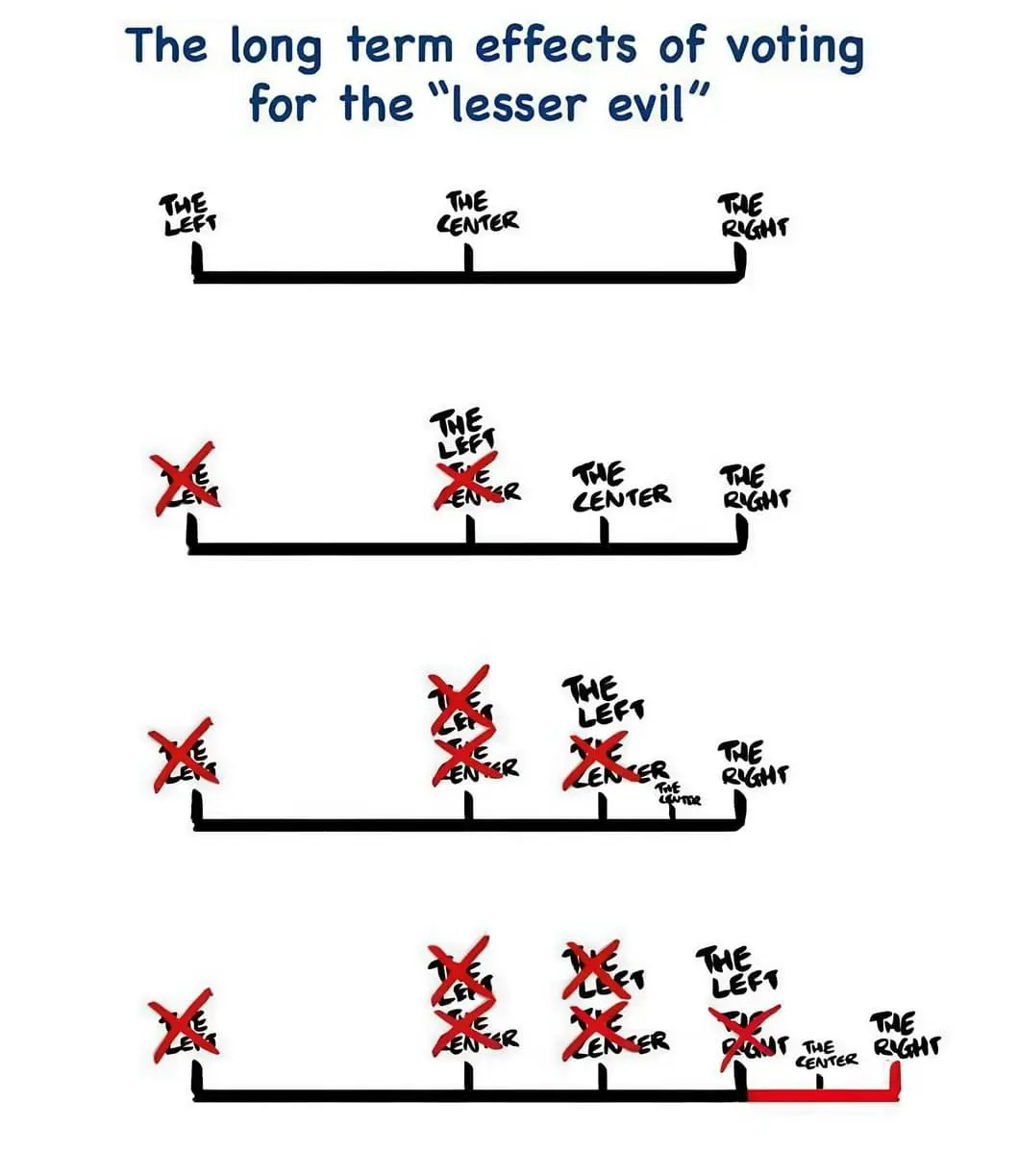this post was submitted on 17 Dec 2024
471 points (78.1% liked)
Memes
45886 readers
1184 users here now
Rules:
- Be civil and nice.
- Try not to excessively repost, as a rule of thumb, wait at least 2 months to do it if you have to.
founded 5 years ago
MODERATORS
you are viewing a single comment's thread
view the rest of the comments
view the rest of the comments

I think depends on the voting system and the election. US has a really bad system with FPTP voting. In that case tactical voting should be used for governor and president but representatives should be voted by the heart to build up better support for third party candidates.
It's also very important to vote in primaries and and party national conventions because those votes affect national policies way more than the elections themselves.
US is very presidential heavy but voting in local elections really counts and allows third parties to slowly build up enough support to create a hung parliament where voting system concessions can be made.
I like to think of it in a "market" way. By voting there is a signal into the market, that their is a demand for a certain political direction. So "stocks" with that profile increase in value. This might be individual politicians, specific laws, parties, or general ideology/values.
Politicians want their portfolio to be attractive, so they get more votes. As a result they will adjust their portfolio of political positions accordingly.
If you vote "tactically" you send a false signal into the market. So instead of getting more politicians to represent the ideas you like, you reinforce them in the ideas you don't like, as that had more buy signals. On the flip side if you send your sell signal, by removing a formally loyal vote from them, you can show them that their portfolio has gotten lopsided.
The difficulty is to think these things longer term. It is not just this election cycle, but 8 years, 12 years maybe even 20 years ahead. The way media and politicians like to represent elections got more and more pointed towards just this single one being the one and only. This is not just a problem in the US, but also countries without FPTP. Also the reporting got less about the specific policies and more about the how and who, turning it into a show of game of thrones, rather than a fight for the best ideas.
That's all true, by voting for minor parties you do entice the established parties to grab some of their policies. This does not address the fact that in FPTP a fractured ideology loses because of the spoiler effect. If you get 5 parties with 10% vote share. Dems on 20% and Republicans on 30% it's a Republican win even though their ideology doesn't resonate with 70% of voters.
You need tactical voting to get the majority of seats in this case also and in a situation where everyone would vote tactically against Republicans they will be pro voter reform since it'll reduce the power of a united right wing.